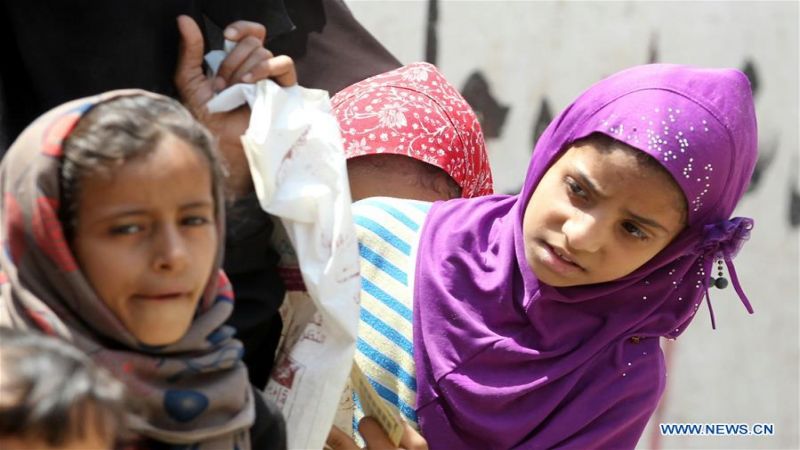
Local Editor
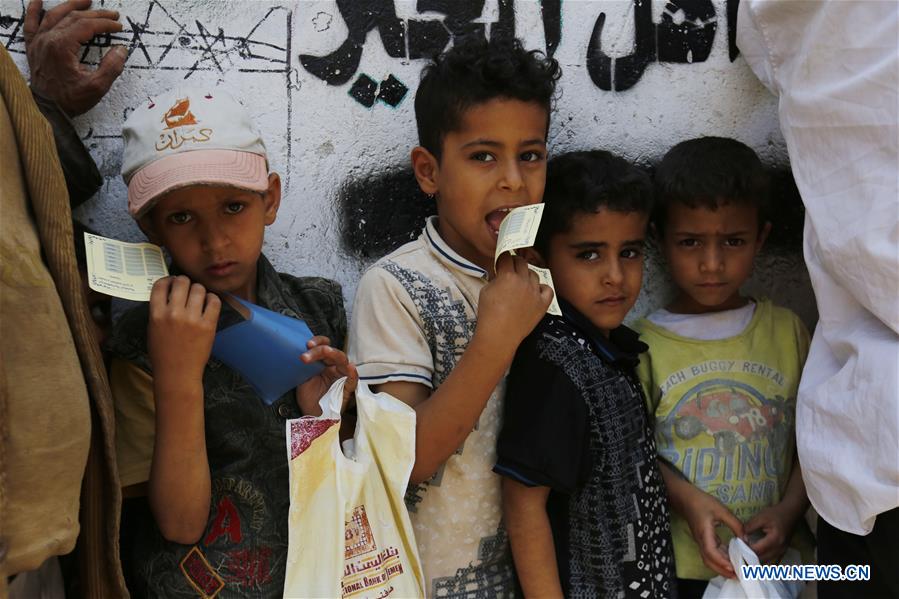
Yemeni war-affected children wait to receive food provided by a charity center in Sana'a, Yemen, on June 18, 2019. If fighting in Yemen lasts until 2022, close to half a million people will lose their lives, including more than 300,000 who will die from hunger, lack of health care and related causes, UN Under-Secretary-General for Humanitarian Affairs and Emergency Relief Coordinator Mark Lowcock on Monday cited a University of Denver study commissioned by the UN Development Programme as saying. (Xinhua/Mohammed Mohammed)
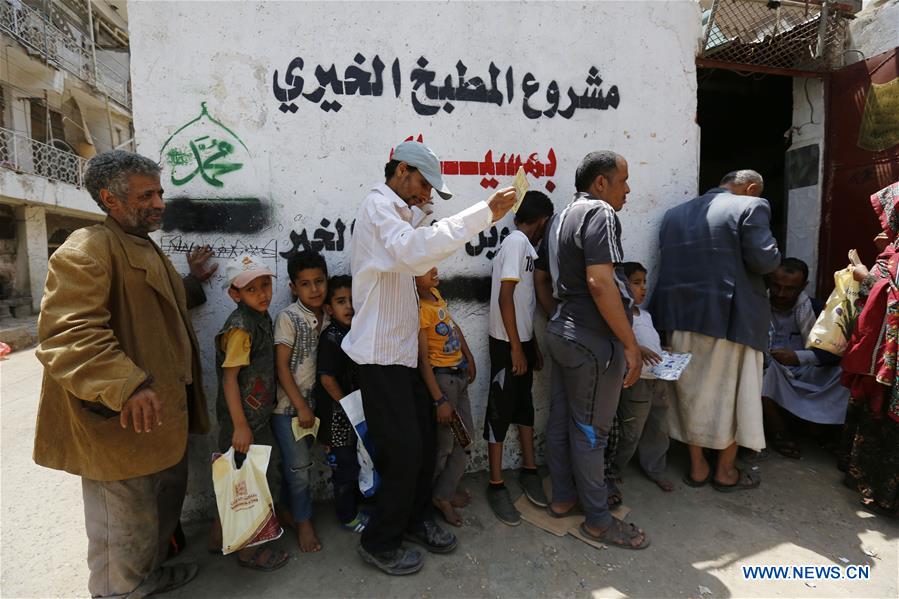
Yemeni war-affected people line up to receive food provided by a charity center in Sanaa, Yemen, on June 18, 2019. If fighting in Yemen lasts until 2022, close to half a million people will lose their lives, including more than 300,000 who will die from hunger, lack of health care and related causes, UN Under-Secretary-General for Humanitarian Affairs and Emergency Relief Coordinator Mark Lowcock on Monday cited a University of Denver study commissioned by the UN Development Programme as saying. (Xinhua/Mohammed Mohammed)
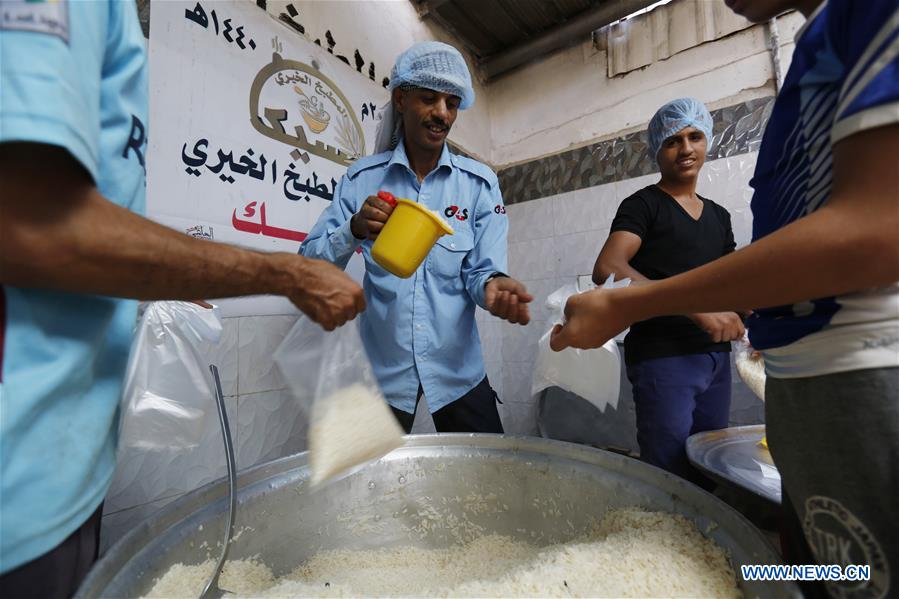
Workers prepare food provided by a charity center for war-affected people in Sanaa, Yemen, on June 18, 2019. If fighting in Yemen lasts until 2022, close to half a million people will lose their lives, including more than 300,000 who will die from hunger, lack of health care and related causes, UN Under-Secretary-General for Humanitarian Affairs and Emergency Relief Coordinator Mark Lowcock on Monday cited a University of Denver study commissioned by the UN Development Programme as saying. (Xinhua/Mohammed Mohammed)
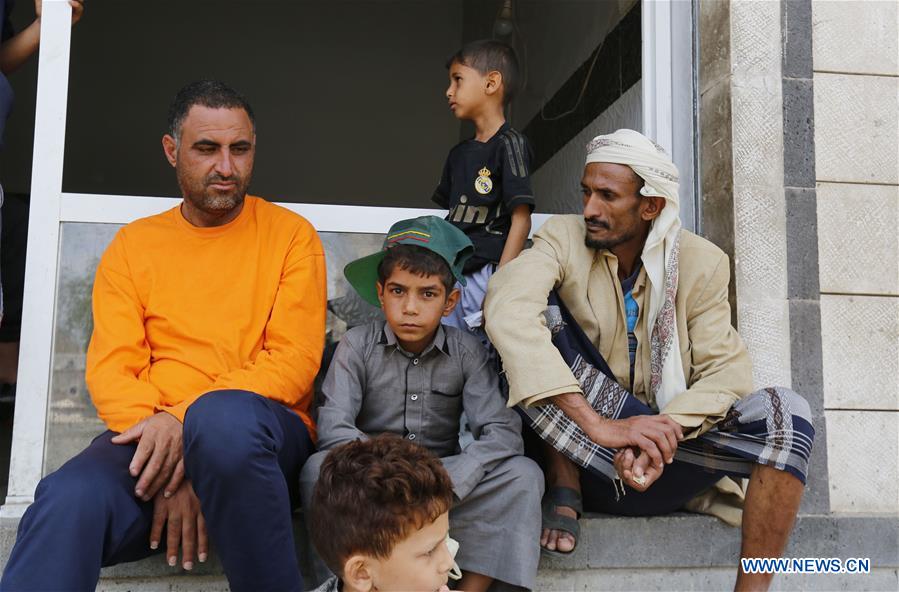
Yemeni war-affected people wait to receive food provided by a charity center in Sanaa, Yemen, on June 18, 2019. If fighting in Yemen lasts until 2022, close to half a million people will lose their lives, including more than 300,000 who will die from hunger, lack of health care and related causes, UN Under-Secretary-General for Humanitarian Affairs and Emergency Relief Coordinator Mark Lowcock on Monday cited a University of Denver study commissioned by the UN Development Programme as saying. (Xinhua/Mohammed Mohammed)